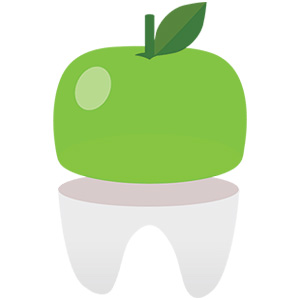When you think about crooked teeth, the first concerns that come to mind are often cosmetic. But did you know that dental problems, including misalignment of the teeth and jaw, can impact your digestive health?
That’s right, research continues to uncover connections between your teeth, oral health, and gut health. In this post, the team at Fresh Orthodontics in Brooklyn is exploring the function of the teeth in the digestive system, the oral-gut axis, and what you can do to protect your smile and your stomach.
The Function of Teeth in the Digestive System
Digestion consists of mechanical digestion (chewing) and chemical digestion (enzymes). Chewing is the first step. Your teeth break down food into smaller, more manageable pieces, making it easier for your digestive system to process.
The act of chewing also stimulates the production of saliva, which contains digestive enzymes that further break down food and epithelial growth factors (EGF) that support the gut lining.¹
Misaligned or damaged teeth can compromise chewing and, in turn, saliva production. This can lead to larger food particles entering the stomach, resulting in symptoms like bloating, gas, and constipation. In fact, research published in the Journal of Gastroenterology and Hepatology found that correcting masticatory dysfunction (i.e., impaired chewing) significantly improved digestive symptoms in patients.²
Can missing teeth cause digestive problems? Yes, missing teeth also impede chewing and limit what a person can eat. A study in the Journal of Oral Rehabilitation even identified a connection between tooth loss and irritable bowel syndrome (IBS).³
The Oral-Gut Axis: A Two-Way Street
The oral-gut axis is the intricate relationship between your mouth and digestive system. Your mouth and your gut are home to large, diverse microbial communities. Bacteria from the mouth may travel to the gut and vice versa.
When mouth bacteria enter the gut, it can cause dysbiosis, a microbial imbalance that may lead to digestive issues or systemic inflammation. Poor oral hygiene, missing teeth, or untreated misalignment can exacerbate this problem by creating conditions for harmful bacteria to thrive.
According to a study in the Journal of Oral Microbiology, when oral bacteria like Porphyromonas gingivalis migrate to the gut and disrupt the microbiome, it increases the risk of conditions, such as IBS and gastrointestinal cancers.⁴
This migration of oral bacteria is especially prevalent in individuals with periodontitis, the severe form of gum disease. Addressing gum health isn’t just about preventing tooth loss; it’s also an important step in warding off dysbiosis.
Gut Health and Teeth: The Feedback Loop
The connection between gut health and oral health goes both ways. An imbalanced gut microbiome can influence oral conditions, creating a feedback loop. For example, gut dysbiosis may increase inflammation in the body, contributing to gum disease or worsening existing dental problems. Prioritizing both oral and gut health is key to breaking this cycle.
How to Improve Gut Health
- Practice good oral hygiene: Brush, floss, and visit your dentist regularly to keep harmful bacteria in check.
- Chew more: While a lot of online sources claim chewing your food 32 times per bite improves digestion, this isn’t backed by research. Foods like nuts or tough meats may require more chewing, while foods like watermelon need less. A better aim? Chew all of your food thoroughly so it’s soft and broken down before swallowing.
- Stay hydrated: Water helps wash away food particles and supports saliva production, which is essential for both oral and gut health.
- Eat a balanced diet: Prioritize whole foods that support the microbiome.
Best Foods for Gut Health (and Your Teeth!)
Certain foods benefit both your gut and your teeth. Incorporating gut-friendly options like these into your diet can improve digestion and support oral health:
- High-fiber fruits and vegetables: Apples, carrots, and leafy greens help clean teeth while feeding beneficial gut bacteria.
- Probiotic-rich foods: Yogurt, kefir, and sauerkraut boost the gut microbiome and may reduce oral inflammation.
- Calcium-rich foods: Cheese and almonds strengthen teeth and support digestive health by helping to maintain proper oral and gut pH.
What to do if You’re Experiencing Symptoms of Poor Digestive Health
If you’ve been dealing with unexplained digestive symptoms like bloating, gas, constipation, or indigestion, discuss them with your general practitioner. They may refer you to a gastroenterologist and/or have you keep a food diary to rule out a food allergy or intolerance.
However, it could also be time to examine your oral health. If misaligned teeth or a bad bite (malocclusion) make it hard to chew properly and eat a wide variety of foods or you’ve been struggling with periodontitis, addressing the problem could help improve your gut health.
The Bigger Picture: Coordinating Care
Straightening your teeth with braces or clear aligners on its own probably isn’t going to eliminate every symptom of poor digestion. On the flip side, eating a healthy diet might not be enough to treat dysbiosis.
Optimizing your overall well-being and digestion takes a holistic approach that includes improving your oral health and making diet and lifestyle changes.
At Fresh Orthodontics, Dr. Ankush Khanna and our team can help you get a smile that works in harmony with the rest of your body!
Ready to Take the Next Step?
Don’t let crooked teeth or oral health issues hold you back from feeling your best. Book a complimentary consultation at Fresh Orthodontics in Brooklyn! Dr. Khanna will give you personalized treatment recommendations to enhance your smile and health.
Sources:
- Patricia JJ, Dhamoon AS. Physiology, Digestion. [Updated 2022 Sep 12]. In: StatPearls [Internet]. Treasure Island (FL): StatPearls Publishing; 2025 Jan-. Available from: https://www.ncbi.nlm.nih.gov/books/NBK544242/
- Mercier, P., & Poitras, P. (1992). Gastrointestinal symptoms and masticatory dysfunction. Journal of gastroenterology and hepatology, 7(1), 61–65. https://doi.org/10.1111/j.1440-1746.1992.tb00937.x
- Esmaillzadeh, A., Keshteli, A. H., Saneei, T., Saneei, P., Savabi, O., & Adibi, P. (2015). Is tooth loss associated with irritable bowel syndrome?. Journal of oral rehabilitation, 42(7), 503–511. https://doi.org/10.1111/joor.12277
- Olsen I, Yamazaki K. Can oral bacteria affect the microbiome of the gut?. Journal of oral microbiology. 2019;11(1):1586422. Published 2019 Mar 18. doi:10.1080/20002297.2019.1586422













